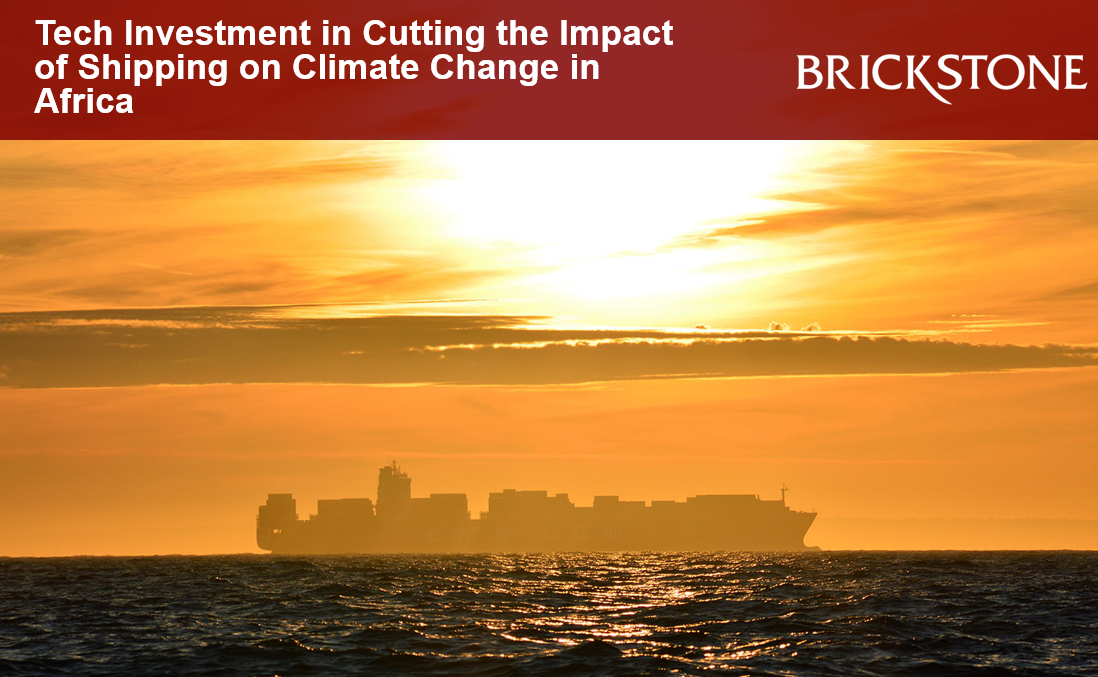Tech investment: Cutting the Impact of Shipping on Climate Change in Africa
Impact of Shipping on Climate Change in Africa
Climate change currently represents a major challenge in the world today, as it threatens the lives and livelihoods of over 100 million in extreme poverty. It poses risks to national economies, financial markets, infrastructure investments, water and food systems, public health, and livelihoods at large; with Africa being the most vulnerable continent to these impacts.
Human activity remains a major driver of these planetary changes as large amounts of green gas emissions are being produced through the burning of fossil fuels. The energy, mobility, and materials sectors remain the highest-emitting sectors, and in a bid to reduce GHG, these sectors will require rethinking efficiency, circularity, and sustainability.
Specifically, maritime transport contributes largely to the global greenhouse gas emissions despite being one of the most energy-efficient modes of transport, and playing an essential role in the EU economy. The sector accounts for around three percent of global GHG emissions annually. Furthermore, these emissions continue to grow and are far from being aligned with the Paris Agreement’s temperature goal of limiting global warming to 1.5 degrees Celsius.
Leveraging technological advancements in reducing the impact of shipping on climate change in Africa, presents huge potential for the industry’s journey towards decarbonization.
This article by Brickstone reviews institutional reports and publications on the need for technological investment in cutting the impact of shipping on climate change.
Tech Investment in Cutting the Impact of Shipping on Climate Change
The world is currently facing a climate crisis, and now is the time for increased collaboration and innovation to tackle the situation. According to the UNEP, it is vital for countries to harness the power of digital technology as the tech industry could help reduce the world’s carbon emissions by about 17 percent.
As a result, maritime experts have called for investment in new technologies and modern ships to reduce the impact of shipping and maritime-related activities on climate change in Africa.
Only digital technologies move at the speed and scale necessary to achieve the kind of dramatic reduction in emissions that we need to see in the next 10 years. Technology can help people around the world adapt to our changing world, as well as reducing the most harmful effects.
According to them, African maritime administrations must put regulations in place to drive investment in new technologies and encourage the acquisition of modern ships for greener shipping. For example, modern technologies like artificial intelligence could help make electric transmission grids more efficient; blockchain technology could allow concerned citizens to track corporate carbon emissions; and the use of satellites can be further enhanced in monitoring environmental changes including activities such as illegal logging, mining and waste dumping, at the sea.
Investment in carbon-neutral vessels, an energy carrier and fuel that could be used to power ships with zero emissions from the ship, could also play a crucial role in cutting the impact of shipping on climate change in Africa.
According to IMAREST, technology is reshaping the shipping industry. Over the next decade or so, new technologies promise to completely transform shipping: an industry that is the engine of 90% of global trade.
Read more here.






